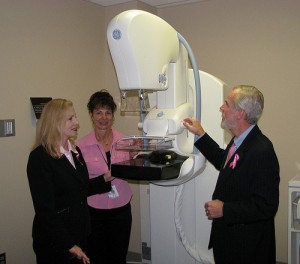 A leading association of pediatricians announced that energy drinks should not be regularly drank by children and teenagers. In fact, they want the youth to not take consume the drinks at all.
A leading association of pediatricians announced that energy drinks should not be regularly drank by children and teenagers. In fact, they want the youth to not take consume the drinks at all.
The American Academy of Pediatrics reported on Monday that consumption of energy drinks by teenagers and young children should be decreased.
Dr. Marcie Beth Schneider, a physician who also co-authored the report, said that there is no place for energy drinks in the lifestyle of the kids. She added that energy drinks have a place somewhere, but not in the diet of young kids.
Energy drinks usually have high levels of caffeine and herbal stimulants like taurine and guarana. The caffeine levels of an energy drink is several time higher than a cup of coffee.
The report authors said that such high levels of caffeine and herbal stimulants are extremely dangerous for kids. Some energy drinks have more than 500 mg of caffeine which is equal to more or less 14 cans of caffeinated drinks. Schneider said that an energy drink is not something a kid should not be taking.
Caffeine in general can increase ones blood pressure, heart rate and insomnia. Schneider, however, refused to point out which energy drinks are better than some. She simply said that when kids are tired, they should get some rest, not drink cans after cans of energy drinks.
A representative of Red Bull, one of the leading energy drinks in the market, defended their product and said that a can of red bull has as much caffeine as a cup of coffee. However, they said that energy drinks may be drunk more quickly than a cup of coffee because they are served cold.

 A recent study found out that children successfully treated for cancer are at higher risk to develop gastrointestinal problems, ranging from mild to severe cases, in the future.
A recent study found out that children successfully treated for cancer are at higher risk to develop gastrointestinal problems, ranging from mild to severe cases, in the future. France appeared set to maintain its strict restrictions on human embryonic stem cell research Thursday after the conservative government won over a parliamentary bid to ease up the country’s law on bioethics.
France appeared set to maintain its strict restrictions on human embryonic stem cell research Thursday after the conservative government won over a parliamentary bid to ease up the country’s law on bioethics. An opinion poll revealed that more than 8 out of 10 women perceive the new guidelines that do not recommend routine breast cancer screening for women below the age of 50 as unsafe.
An opinion poll revealed that more than 8 out of 10 women perceive the new guidelines that do not recommend routine breast cancer screening for women below the age of 50 as unsafe. Roche Holding AG gave an upbeat statement about the possibility of Avastin getting an approval to be a key drug for ovarian cancer.
Roche Holding AG gave an upbeat statement about the possibility of Avastin getting an approval to be a key drug for ovarian cancer. A new research suggests that the growing trend in sedentary jobs is one of the major factors in the increase of obesity cases in the United States. Sitting in front of the computer for eight hours a day rather than working on the field means that American workers are burning 140 fewer calories per day than they did decades ago.
A new research suggests that the growing trend in sedentary jobs is one of the major factors in the increase of obesity cases in the United States. Sitting in front of the computer for eight hours a day rather than working on the field means that American workers are burning 140 fewer calories per day than they did decades ago. Planned Parenthood challenged South Dakota in federal court on Friday over an abortion law that would entail women seeking abortions to a 72-hour waiting period and counseling at crisis pregnancy centers.
Planned Parenthood challenged South Dakota in federal court on Friday over an abortion law that would entail women seeking abortions to a 72-hour waiting period and counseling at crisis pregnancy centers. U.S researchers say that Hispanic women who experience domestic abuse during pregnancy or shortly before getting pregnant have five times increased risk to acquire postpartum depression.
U.S researchers say that Hispanic women who experience domestic abuse during pregnancy or shortly before getting pregnant have five times increased risk to acquire postpartum depression. A clinical trial on adult stem cell therapy for patients with amyotrophic lateral sclerosis or ALS has been approved by the Health Ministry of Israel. It will be launched by the clinical-stage biotechnological company, BrainStorm Cell Therapeutics.
A clinical trial on adult stem cell therapy for patients with amyotrophic lateral sclerosis or ALS has been approved by the Health Ministry of Israel. It will be launched by the clinical-stage biotechnological company, BrainStorm Cell Therapeutics. Republican leaders on Sunday said that they would be receptive on possible negotiations regarding healthcare costs- one of the main obstacles to realize a deal that would likely cut the financial debt in the United States.
Republican leaders on Sunday said that they would be receptive on possible negotiations regarding healthcare costs- one of the main obstacles to realize a deal that would likely cut the financial debt in the United States.